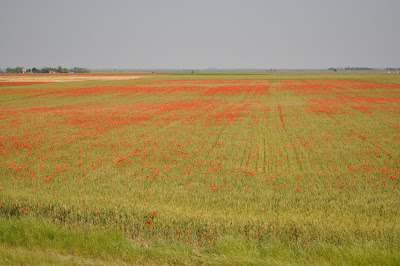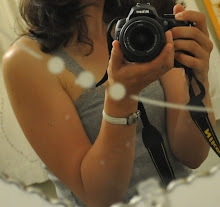It was when I couldn't keep a flower alive long enough. I had sheltered it from the killer sun, I had cradled it, I took good care of it, but it was all in vain, and it withered within a couple of hours.
It was June, and the heavy heat was dragging low to the ground. The landscape was the one I loved: my mother's land, with protruding peaks and craggy edges of the Rtanj mountain, the wide green valleys and tame villages, an old road lined with wallnut trees, where -- decades ago -- my mother traveled on a bus every time she would visit her parents. It was still all there, wavering in the mid-day summer mist through the car window, but it was all different -- because I was watching it for the first time without my mother, and because I knew there were untold stories about these places which she could have told me but which were gone now.

She had died only a few days before, suddenly. What was left of us -- my father, my brother, and me -- had done the most difficult thing in the world: we went to see my grandparents, my mother's parents, too old and too sick to come to Belgrade. Now we were going back to the funeral through that lovely, quiet, smiling landscape, me trying to shield a big pink hydrangea flower from the sun seeping from all sides into the car.

The hydrangea was from my grandmother's garden, always full of flowers in June. She had cut it that morning before we left -- an old woman beaten to the ground by this death that left her no time for goodbyes -- she gave it to me, and said to put it on my mother's grave, where she couldn't go. That was all she had. There was nothing else she could offer. This flower was the beating heart of my grandmother's love for my mother, and I was in charge of it.
This flower was my mother, 3 years old, in her crude-cloth dress made by her mother, 23 years old, arms and life full of her daughter, forever together in the photograph; this flower was the downy yellow chicks my grandmother brought into my mother's bed to wake her up for school; this flower was the shy skinny girl standing next to her mother in front of the microphone, singing; it was also the dreamy young woman tucked into a long fur coat she got from her parents, large snowflakes falling on her scarfed head; it was the gossamer-light veil trailing around her wedding day, it was the hundreds of kilometers that took her away, it was all the pride, and hope, and daylight she was, and all the additions and branchings and renewals of life, it was all of us, all the summers when we met, and all the other days of the years, passing. This flower was all there was, and more.
And it was disappearing visibly under the cruelly oblivious sun. In the silence of the light-poised air outside, the flower's fragility was spreading like a blood-stain on white clothes. I was sitting next to it, helplessly in charge, muted, paralyzed. It was truly the saddest moment I had known: I could not, just could not, save this last symbol of goodness and love. I could not, simply could not, deliver that last message.
This failure should not have been an important one -- a symbol is just a symbol, not the real thing. And yet, the death of this flower hurt much more than symbolically. It hurt where it hurts the most: in the dark inner place before words, and symbols, and reasons; the place where things are what they are, nothing more and nothing less.









